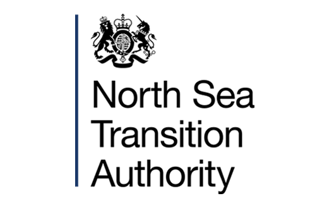
The licence requires that only an approved operator may manage or supervise the exploration and production phases of an oil or gas development. The objective of this requirement is to ensure that field operations are undertaken competently.
Licensees are required to appoint a field operator to manage production and development operations. This appointment requires prior approval by the NSTA.
Environmental and safety aspects of oil and gas developments are regulated by the Offshore Major Accident Regulator (OMAR). The Offshore Safety Directive 2015 also requires licensees to appoint an installation operator and / or a well operator to carry out offshore petroleum operations. Nominations should be submitted via the Well and Installation Operator Service (WIOS) portal. The WIOS System of Record lists current OSD well and installation operator appointments. The System of Record is accessible to all here. These can be the same as the field operator or a separate third party can be appointed to provide the service. These appointments require the agreement of NSTA and the OMAR. Here you can find further guidance on the appointment of Well and Installation Operators under the Offshore Safety Directive.
The guidance below applies only to the appointment of field operators under the model clauses in the licence. Guidance on operatorship during the exploration phase and on Pipeline Operatorship can be found here:
The first appointment of a field operator at a site will be connected to the Field Development Plan (FDP) process. Licensees should discuss NSTA’s requirements for Field Operator approval early in their discussions with the NSTA about their FDP. The operator must be appointed before FDP approval can be granted.
Subsequent proposed changes will be handled as part of routine licence processes such as licence assignments. Either way, operatorship approval is always processed as part of the licence administration process, PEARS. NSTA generally expects licensees to choose the production operator from amongst themselves and for the chosen licensee to be the representative of all the licensees collectively.
For these purposes, ‘licensee’ means those licensees with a beneficial interest in the field/subarea concerned. This is without prejudice to the fact that all licensees are jointly and severally responsible for obligations and liabilities arising on their licence, whether they have a beneficial interest or not.
The degree of scrutiny of a new prospective field operator will depend on their existing track record, both on the UKCS and elsewhere, of financial, technical, management and environmental competence. Here you can find detailed guidance on the information required from a prospective operator.
To be appointed as an field operator a company will need to show that it understands the Strategy obligations on licensees, NSTA’s Expectations for effective Stewardship, and the environmental responsibilities of the operator ; and that it is competent, both financially and technically, to discharge these under its agreements with its co-Licensees (and wells and installation operators if appointed). The company will need to be able to demonstrate a sound management structure staffed by an established group of experienced personnel
NSTA has no financial criteria for operatorship as such, separate from the criteria applied to a company as licensee. Note that NSTA’s Financial Capacity criteria for field developments is stricter than those applied at licence award or licence assignment, in that each licensee has to demonstrate actual availability of cash resources to meet its share of the FDP Costs, not merely the capacity to raise the necessary cash, and that funding arrangements should include a reasonable contingency to cover cost overruns and other unplanned events. Here you can find separate financial guidance issued by the NSTA.
There is a business model in which some activities traditionally undertaken by the appointed field operator are contracted out to third parties. The NSTA is aware of the potential benefits of this approach but must be assured that the appointed field operator has the ability to discharge its responsibility for the overall supervision and management of field operations.
Note that, even if third parties are appointed as Well and Installation operators, licensees still retain a number of responsibilities related to safety and environmental performance – see Regulation 5 of the Safety Case Regulations 2015 and the associated guidance.
The field operator must retain sufficient expertise and resources to evaluate and manage the quality of the work of a sub-contractor and be able to form an independent view as to whether the contractor's plans or activity accord with good oilfield practice and will result in the maximum recovery of economic hydrocarbons, alongside supporting the drive to net zero carbon by 2050, with due regard for health, safety and the environment.


